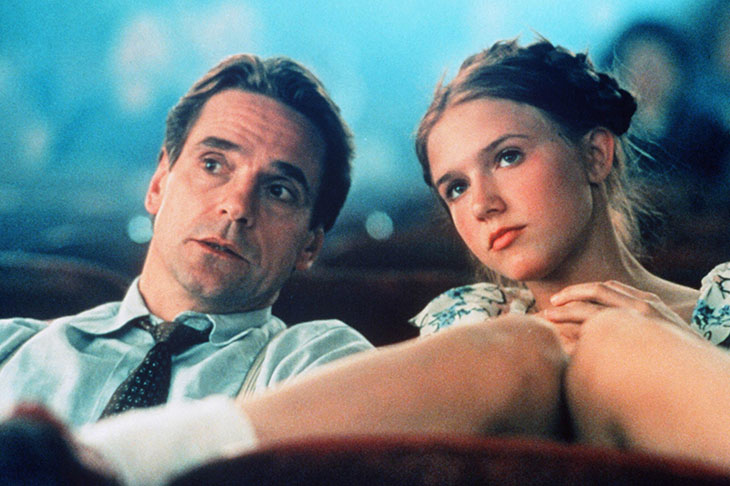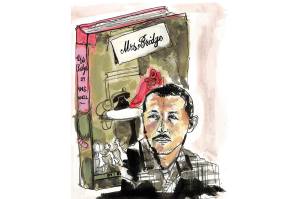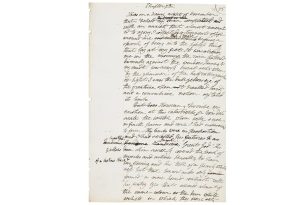The other day the author Will Self unburdened himself on the state of fiction with crushing hauteur. ‘What’s now regarded as serious literature would, 10 or 20 years ago, have been regarded as young adult fiction… in terms of literary history, it does seem a bit of a regression. If you consider that Nabokov’s Lolita was on the New York Times bestseller list for nine months, it’s a different order of literature…’
Stop right there! Will Self’s top pick was Lolita. This was the novel of the 20th century that stood the test of time. But would Lolita even be plucked from the slush pile in 2019, let alone be listed as one of the 100 best novels ever written by Le Monde, Time, and newspapers passim?
If placed on the curriculums of universities (big ‘if’), surely it would attract an automatic trigger warning along the lines that ‘The plot of the novel is the systematic rape of a young girl’.Would the big book of the last century be prejudged as ‘inappropriate’ by this one?
Those who have followed Lionel Shriver of this parish on the new ‘morality clauses’ in authors’ contracts, or on new targets for publishing work by BAME authors, will be aware that publishing is having a massive attack of wokeness. Indeed one casualty of the Nouvel Pudeur was Shriver herself, who was dropped as a short story prize judge after calling into question in these pages Penguin Random House’s ‘voluntary inclusion tracker’, a worthy initiative the publisher launched to make its output less pale, male, stale and so on.
All well and good (disclosure: I am proud to be published by Penguin) — but what disturbs me more is how identity politics is leading to the scapegoating of authors. When it comes to biography, point of view, even voice, authors must tell the truth — not even their truth. If you’re a writer, you literally can’t make it up.
A while ago, some stories about Asian teenage girls by Rahila Khan were picked up by the BBC and issued by Virago, and everyone was thrilled — but then it transpired that Khan was called the Revd Toby Forward and was an RE teacher in a girls’ boarding school, and Virago pulped the books.
‘I had women leaving messages on the answerphone, saying “We’re going to take your balls off,”’ Forward told the Guardian.
A million-plus-selling literary novelist of my acquaintance — fêted for penetrating the labile recesses of the female heart — was warned that he should not attempt to write his next novel, set in the first half of the last century, in the voice of a woman.
‘But the real story is about what is happening in the world of young adult publishing, where the mood is becoming so militant that you are no longer allowed to write from the perspective of anyone other than yourself,’ observes the literary agent Natasha Fairweather. ‘Amelie Wen Zhao withdrew her book from publication with a Twitter post that read like a Stalin-era apology.’
Back to my Lolita question. Would any publisher have the balls to publish a book by an old white man about an old white man rogering an underage girl, given that the list of too-hot-to-handle topics (as described by Ms Shriver) include ‘anything to do with gender, sex, race, immigration, disability, social class, obesity and Islam’?
To answer my own question I started — as you do — by typing ‘Lolita’ into Google. An alert flashed up, which said, ‘Warning: child pornography is illegal’. I looked guiltily over my shoulder in the London Library in case anyone was watching me.
I clicked out, and picked up the phone instead. ‘No,’ said Dan Franklin, of Cape. ‘I wouldn’t publish Lolita. What’s different today is #MeToo and social media — you can organize outrage at the drop of a hat. If Lolita was offered to me today, I’d never be able to get it past the acquisition team — a committee of 30-year-olds, who’d say, “If you publish this book we will all resign.”’
When I was talking to Franklin, it occurred to me. I had just read Putney, by Sofka Zinovieff, a haunting novel published by Bloomsbury last year about a 12-year-old girl groomed for sex by a 40-year-old man. ‘Ah, but what about Putney though?’ ‘I actually turned Putney down, and Sofka is one of my authors,’ Franklin said, to my surprise. ‘I was uncomfortable with it.’
Franklin says the real tragedy is that writers are censoring themselves, and irony has gone missing in action.
Writer Dan Mallory (ignore the fact his debut thriller The Woman in the Window went straight to No. 1 on the New York Times bestseller list) has been pilloried in an 8,000-word New Yorker article for telling porkies about himself, which seems mad. ‘We all knew he had fantasies,’ said his former colleague Jonathan Lloyd, of agency Curtis Brown. ‘Does the fact that he might be a bipolar fabulist detract from his abilities to write a novel? Not in the least.’
Of course, we shouldn’t panic: this is the literary Circle of Life. ‘Don’t forget that after the 1950s came Lady Chatterley and the 1960s,’ says Franklin, the sage of Cape. The Weidenfeld & Nicolson website still boasts it was the first publisher to bring out Nabokov, so we can safely say that Snipcock & Tweed stands by its man, and Lolita would find a publisher today.
The more pertinent question is perhaps this, as moth-eaten literary lion kings see the torch pass to young, female, BAME and LGBTQ cubs of the publishing world. Would a middle-aged white man in mid-career who churns out ‘1,500 fucking pages of serious fiction in seven years’ find a reader in 2019?
Discuss!
This article was originally published in The Spectator magazine.


















